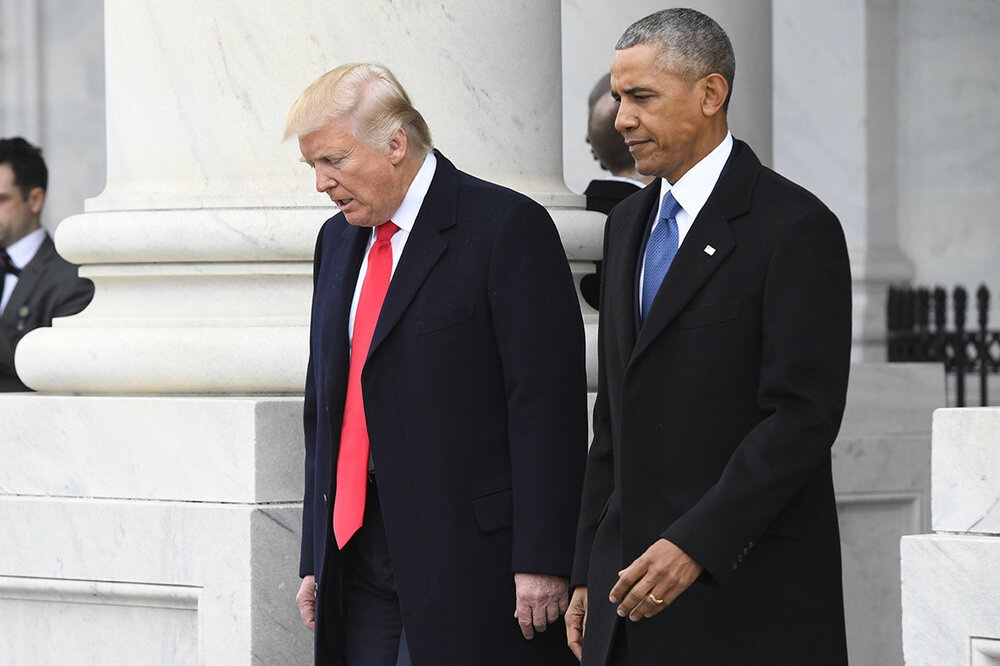Trump enjoyed destroying nuclear deal as Obama’s major foreign policy success: professor

TEHRAN - Roy Licklider, an adjunct senior research scholar at the Saltzman Institute for War and Peace Studies and adjunct professor of political science, says Donald Trump was happy to kill the 2015 nuclear deal which was President Barack Obama’s major foreign policy success.
“Trump enjoyed destroying President Obama’s major foreign policy success,” Licklider told ILNA in an interview published on October 6.
Licklider said like other academics he was a strong supporter of the nuclear pact, officially called the Joint Comprehensive Plan of Action (JCPOA).
“I strongly approved of the Joint Agreement, like most academics I know, and I saw it as President Obama’s major foreign policy achievement,” Licklider remarked.
‘Trump enjoys overriding experts’
The professor said Trump did not heed warnings by politicians and academics to avoid abandoning the JCPOA.
“The fact that many observers thought this was a mistake did not deter him; he enjoys overriding ‘experts’.”
He also applauded efforts by the Europeans and Iran to keep the deal alive, “but I doubt that they will succeed”.
According to the Associated Press, the Spaniard set to become the European Union's point-man in Iran says the nuclear deal with Tehran must be preserved.
During a parliamentary confirmation hearing to become the next EU foreign policy chief, Josep Borrell said Monday that "we have to keep this agreement alive in order to defend our interests, our security and avoid something worse."
Borrell, who is currently foreign minister in Spain's caretaker government and set to take over in Brussels from Federica Mogherini on Nov. 1, says "the political unity of the Europeans will be crucial" in keeping the agreement going.
‘Trump notoriously willing to change positions but not on JCPOA’
The academic also said Trump is infamous for changing position on issues but not the multilateral nuclear agreement.
“President Trump is notoriously willing to change positions on issues, but it seems unlikely that he will do so with this one.”
On his prediction of U.S. foreign policy in the post-Trump era, Licklider said, “If Trump’s successor returns to a more traditional foreign policy, I suspect most allied governments will be relieved and encourage the change.”
He also said it is unlikely that sanctions pressure will force Iran to change policy, noting that massive academic literature over the past several decades concludes that sanctions don’t change important policies.
Iran has said that it is adopting “maximum resistance” in the face of Trump’s strategy of “maximum pressure”.
Professor Licklider said the United States exerts economic pressure on people with the hope of inciting them to rebel against the ruling system.
“They are supposed to work by making a population so miserable that it will pressure its government to change policy, but target governments can usually deflect this process by appealing to nationalism and blaming the sanctioning state.”
On the unrest and conflicts in certain Middle Eastern states, he said, “There are many different violent conflicts in the region, each with its own distinctive issues. Many of these are due to weak economies, bad governance, and outside involvement, all of which can be fixed in principle.”
PA/PA
Leave a Comment